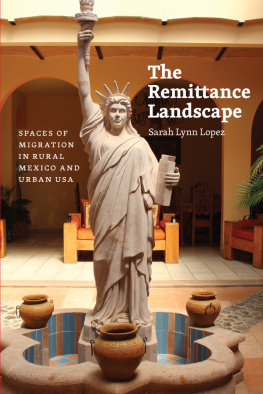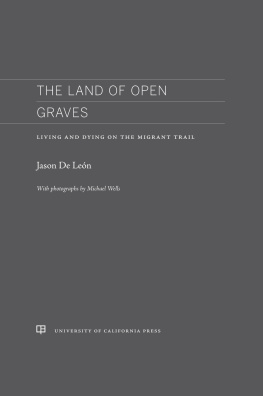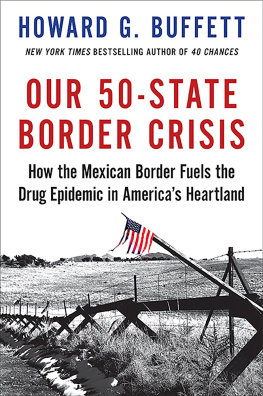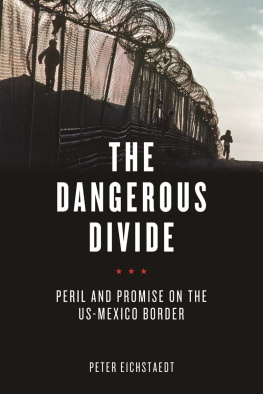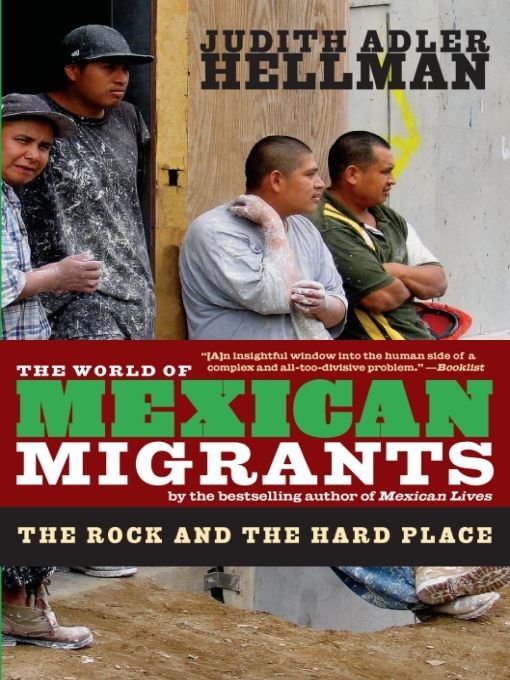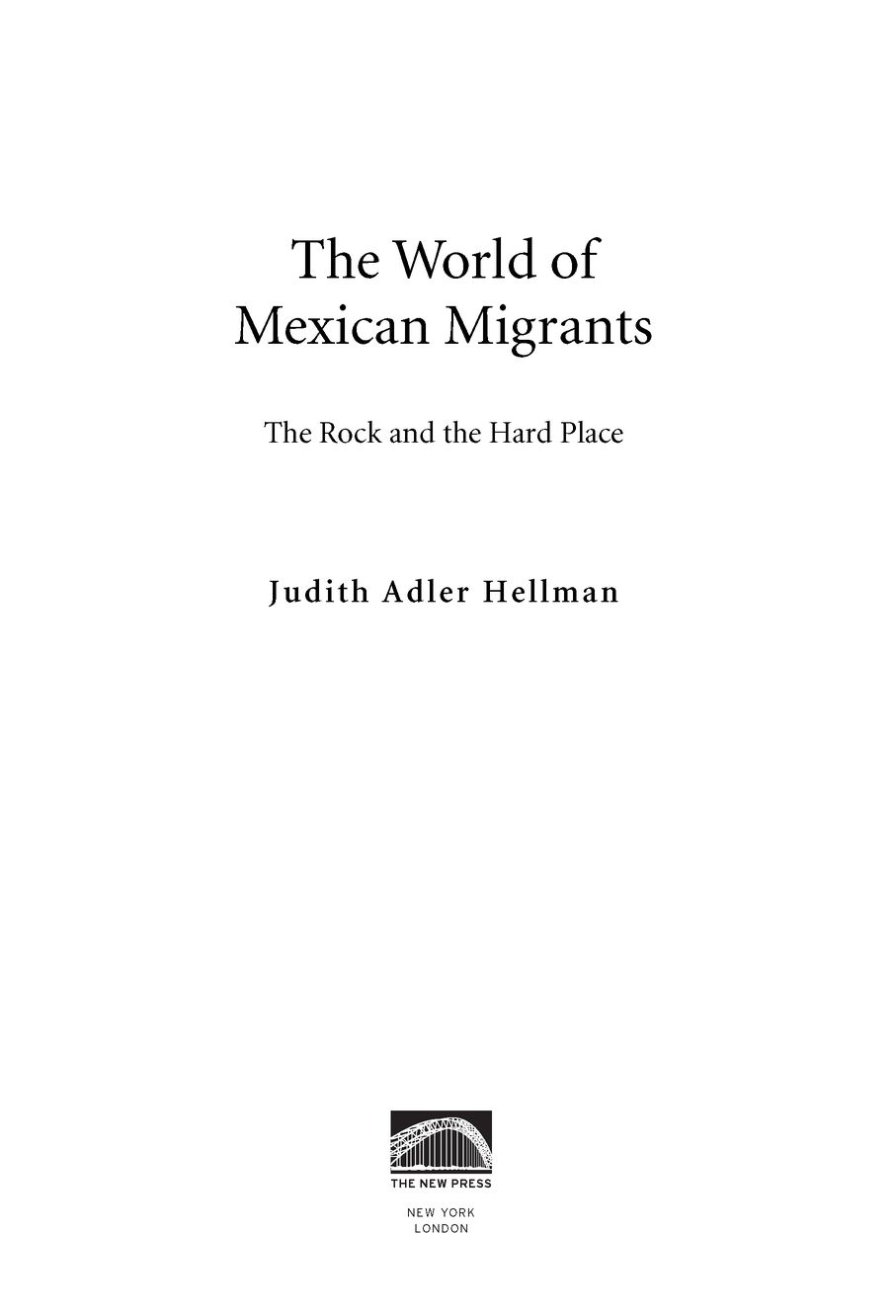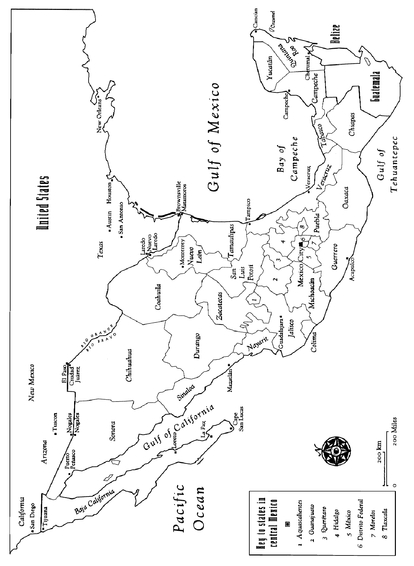Table of Contents
Also by Judith Adler Hellman
Mexican Lives
Mexico in Crisis
Journeys Among Women: Feminism in Five Italian Cities
For Steve
Acknowledgments
This book is constructed on a foundation of remarkable solidarity and kindness shown to me by friends in Mexico and the United States.
Leigh Binford, Nancy Churchill, Blanca Cordero Daz, Sergio Corts, Mara Eugenia dAubeterre Buznego, Delfina Martnez Alba, Alison Lee, Gonzalo Llamas Bernal, Sandra Vernica Garca Cabrera, Juan Ramn Ortiz, and Liliana Rivera packed me into their cars and spent whole days taking me around to meet returned migrants, prospective migrants, and migrant-sending families in Puebla, Morelos, Veracruz, Jalisco, and Zacatecas. They introduced me to people I could never have met, let alone interviewed, were it not that I was presented to them by friends who had worked long and hard to develop warm relations of confidence and trust in widely scattered villages and towns. Under the circumstances, the term generous is hardly adequate to describe those who took me to places I would never have known and shared with me their own contacts so that I could meet and interview the kinds of people whose experiences would illuminate this study.
With other colleagues and friends I had discussions that went on for hours and, in some cases, days, as they shared their knowledge and their writings and offered opinions on my preliminary impressions and tentative findings. Jernimo Cabrera, Rocio Crdova, Wayne Cornelius, Alyshia Galvz, Rodolfo Garca Zamora, Gustavo Lpez Angel, Juanadelos Angeles Meja Marenco, Cristina Nez Madrazo, Frances Rothstein, David Skerrit, Ofelia Woo, and Patricia Zermuda all gave invaluable help of this kind. Kirsten Appendini, Adriana Alcntara, and Saul Macas shared preliminary research findings, which greatly enriched my own understanding of the data I was collecting. Carlos Garridos vivid description of his own participant observation in a household of migrants in New York pointed me toward many questions I might otherwise never have thought to ask.
The scope of this project, which involved interviews in five locations in Mexico and another five in the United States, created for me a whole other category of people to whom the most heartfelt thanks are due. These are friends and relations who hosted me in their homes during periods of fieldwork and offered not only food and shelter but also indispensable encouragement through their willingness, indeed, sometimes eagerness, to hear and comment upon the stories that I was collecting. These wonderfully supportive people are Nancy Churchill and Leigh Binford, Ann Craig and Wayne Cornelius, Fran and Bob Rothstein, Kirsten and Mario Appendini, Janet and David Carruthers, Carole Bender, Silvia Gmez Tagle, Nora Hamilton, Alma Maldonado, Jennifer Parker and Jerry Litwak, Fred Rosen, and, as always, Cynthia Hewitt de Alcntara and Sergio Alcntara Ferrer.
Ira Baumel, Carole Bender, Eduardo Canel, Pablo Idahosa, Esther Jennis, John Lear, Grace Lewis, Jean Rapp, Dennis Rodgers, Ray Seidelman, Miriam Slipowitz, Emily Sugerman, Sid Tarrow, and Patrick Taylor all read chapters of the book and provided helpful feedback. My sister, Nancy Baumel, and my husband, Steve Hellman, both read the entire manuscript, offering invaluable comments. I am also indebted to Paula Hevia, Luz Mara Vzquez, Carlos Velsquez, and Leandro Vergara Camus for careful transcriptions of many hours of interview tapes, and to Liam Mitchell, Blake Robichaud, and Ellen Shub for monitoring the immigration debate online.
I am grateful for the help of Brother Joel Magalln, Esperanza Chacn, and the late Joe McNulty at Associacin Tepeyac, and at Project Hospitality, for the kindness of Patrice Pica, Terry Troia, and especially, Gonzalo Mercado, who went to great lengths to connect me to the community of day workers. Hillary Greene and Brook Mead of the Berkshire Immigrant Center offered valuable help. I owe thanks as well to the Mexican consuls general in New York, Salvador Beltrn del Rio and Javier Daz, and the consul of Mexico in Tucson, Juan M. Caldern-Jaime, as well as their staff for the data they provided for this study.
I wish to acknowledge the support of the Social Science and Humanities Research Council of Canada, which, together with the Faculty of Arts of York University, provided the funding that made this research possible. I am also grateful to the Center for Latin American and Caribbean Studies at New York University, which hosted me as a Visiting Scholar during two periods of fieldwork in New York, and particularly to Maritza Coln, Patty Oscategui, and the director of CLACS, George Yudice, for making me feel so welcome in that center and for facilitating my work.
Andr Schiffrin is justly famous for conveying to authors both his enthusiasm and his belief in the importance of what they have to say, and I am very grateful for his unflagging commitment to this project. Joel Ariaratnam, at The New Press, brings an exuberance to his work as an editor that has made our collaboration as much fun as it has been productive, and his careful reading of the manuscript has been of the greatest help to me.
Of course, I also owe a debt of gratitude to a group of people I cannot mention by name. These are the scores of Mexicans who welcomed me into their lives, patiently answered my questions, and reinforced my belief that their experiences are important to share. The warmth and encouragement of the research subjects themselves was the element that made this project so gratifying for me.
This book is dedicated with love to my husband, Steve Hellman, whose love, support, and humor have always provided the underpinning for everything in life that ever seemed to me worth doingmost recently, the work on this project.
Prologue
Luis: Keeping Your Head Down
Luis figured out an escape plan the day that a fight broke out in the deli where he had worked his way up to grillman. Luis couldnt even tell me what the fight was about, but he remembers that Alex, a Dominican who was normally expansive and secure in his privileged role as the only person who could bridge the gap between the Greek owner and the Latinos in the kitchen, actually threw a punch at Rolando, a Salvadoran. There was a lot of shouting and none of the Mexicans said anything to Alex or Rolando or to each other, but Luis was deeply shaken.
Of course Luis had seen lots of fights in the cantina in his barrio in Tenango in the Mixteca, the arid region of the states of Puebla Oaxaca, and Guerrero. He had seen punches thrown and a lot worse: men who fought with machetes and knives. He had seen neighbors who were compadres, and who played on the same soccer team, get drunk and draw knives and cut each other on the face! Luis had seen a lot of foolish, drunken fistfights in his day and he, himself, had gotten into punch-ups as a teenager.
But this was different. This wasnt a cantina or a pulqueria where men throw back one copa after another of intoxicating pulque extracted from maguey plants. The deli was a workplace, a place to which Luis and the others had traveled three thousand miles to find jobs, a place for which he had paid a


